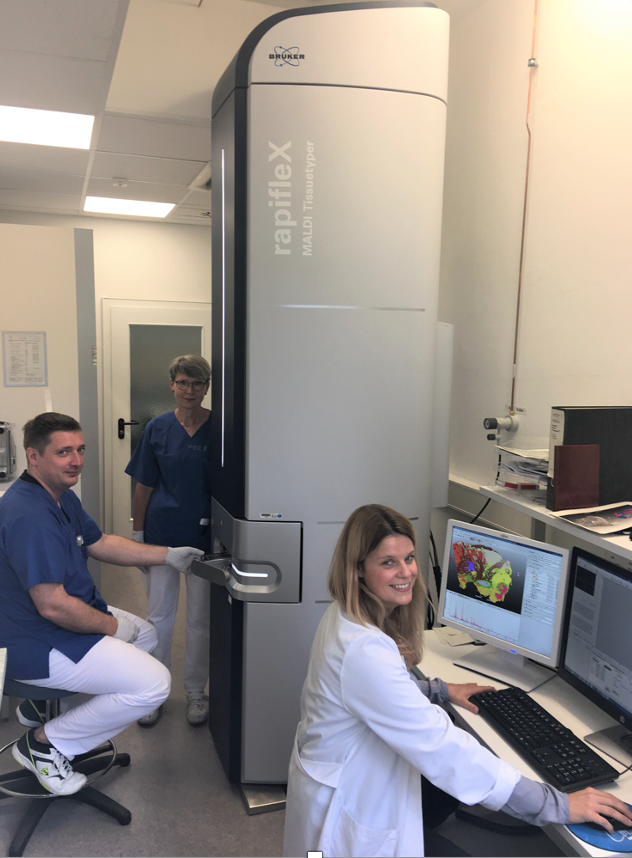12/10/2021
Print PageMALDI Imaging in Cancer Research

In the online seminar “Development in mass spectrometry imaging for tumor diagnostics and research” on September 30, 2021, Pia Hönscheid (Institute of Pathology Dresden, MALDI Imaging Unit at NCT Dresden, DKTK partner site Dresden) presented the principles of mass spectrometry imaging to the 18 participating young scientists of the DKTK School of Oncology. The technique enables spatially resolved mass spectrometric measurements, thus combining mass spectrometry with histology. With a resolution of up to 5x5 µm2, it is possible to analyze tissue samples at the single cell level. Pia Hönscheid first explained the bioinformatics methods used and the complex technical nuances of MALDI (Matrix Assisted Laser Desorption Ionization) imaging.
In the second part, the participants were given an insight into the diverse work of the MALDI Imaging Facility in Dresden. The team's priority is the joint planning of experiments. There were many helpful tips on what needs to be considered before a project can be started. The measurement of peptides and lipids is possible on FFPE (formalin fixed and kerosene embedded) samples as well as on snap-frozen tissue. In principle, embedded organoids and cell cultures are also possible.
"The research projects already underway demonstrate the broad spectrum of interdisciplinary research questions that we can address with the help of MALDI imaging. This ranges from preclinical experiments to the development of methods that could support pathologists in the classification of tumor samples in the near future", Hönscheid summarizes. "We look forward to new research collaborations at the Core Facility in Dresden and support projects across the entire NCT / DKTK network." Interested scientists can contact Pia Hönscheid* or the DKTK coordination office.
*Coordination MALDI Imaging Unit, NCT Dresden
Dr. rer. med. Pia Hönscheid
E-Mail: pia.hoenscheid(at)uniklinikum-dresden.de
Phone: +49 (0)351 45813038
Dr. Antje Dietrich, Scientific Coordinator DKTK Dresden